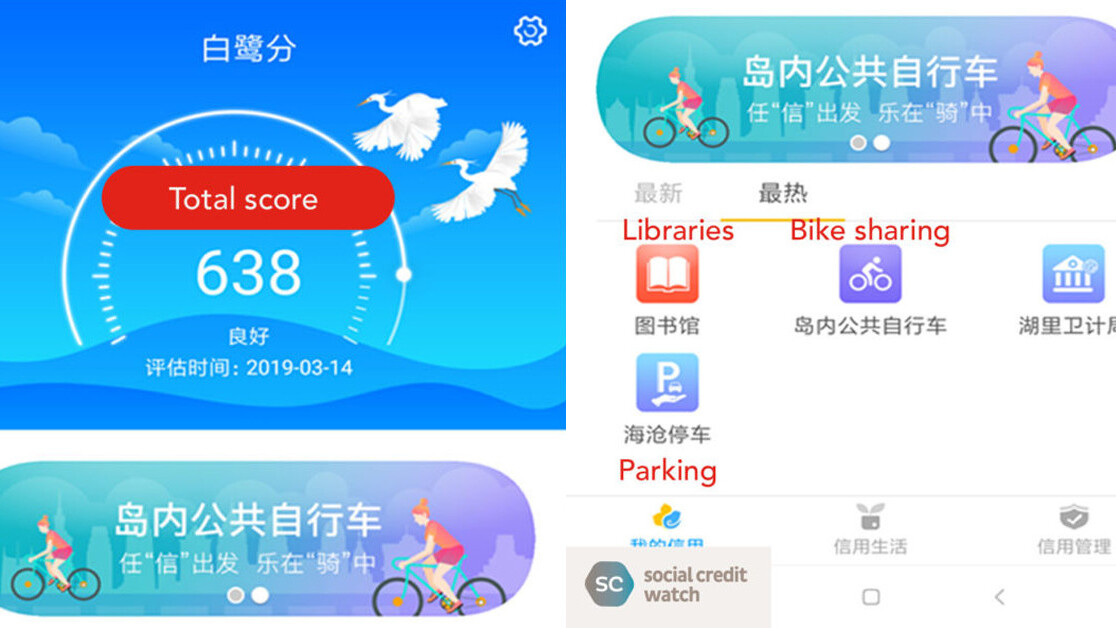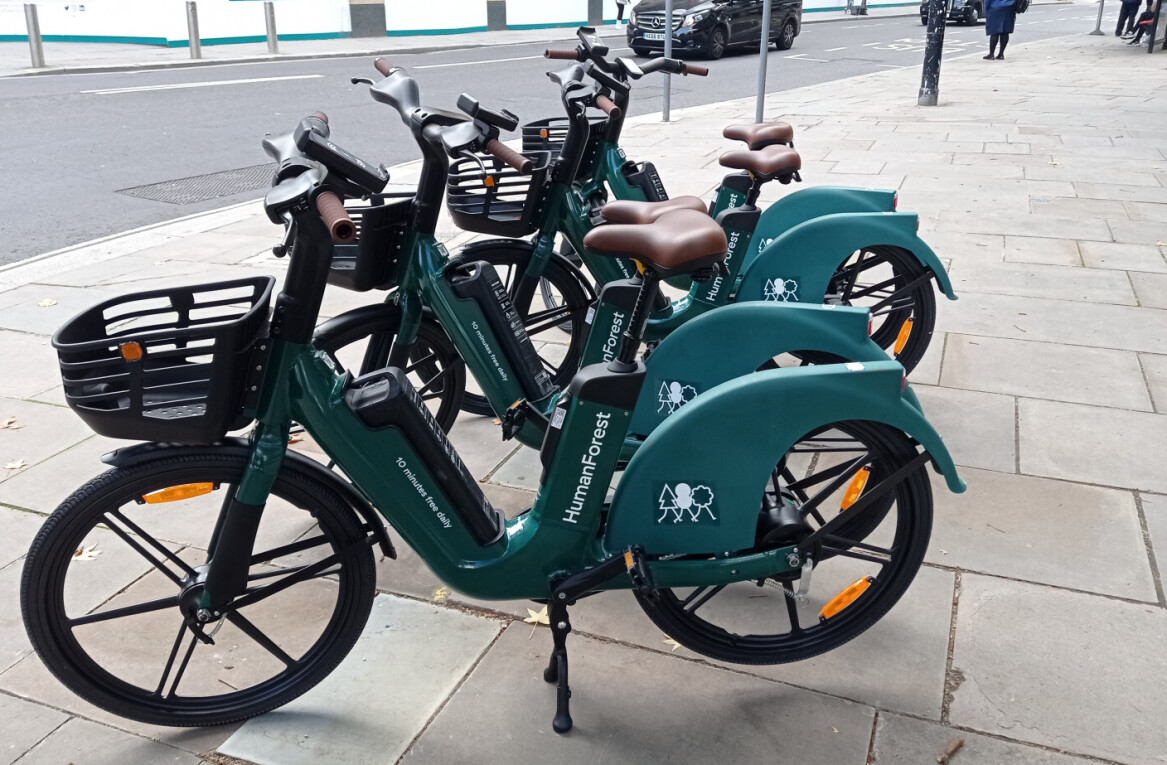China’s emerging social credit system (SCS): rarely has a topic been more hotly discussed, and more poorly understood.
When most people think about the SCS, they imagine it primarily as a scoring mechanism, a way for the central government to rank China’s citizens and companies based on their behavior. But that’s a skewed misconception of what social credit actually is. The social credit system, at its core, is perhaps better described as a data-sharing service; the more technical among you could reasonably think of it as a massive national API.
China’s central government doesn’t see its own role in the SCS as an assigner of scores, but rather as a record keeper, whose job is to consolidate government files into a central database of social credit records, and then through that database, provide state agencies, city governments, banks, industry associations, and the general public with data on individuals and companies so they can make their own evaluations.
The master database of social credit records has already been built: it’s called the National Credit Information Sharing Platform (NCISP), and a significant amount of the data it contains is open for public sharing.
Though the central government has yet to put out its own flagship social credit app, it has actively encouraged local governments and private developers to build mobile applications that incorporate NCISP data in innovative ways.
Early this year, the National Development and Reform Commission (NDRC), the state body responsible for the implementation of China’s social credit system, held a credit-app awards event designed to provide a platform where the public and private sectors could learn from each other’s innovations. A similar event, the Xinhua Credit Cup, ran from September 24-25, recognizing outstanding achievements in urban credit development projects.
We took a look at several of the winning mobile platforms from both of these conferences, as well as some interesting platforms that didn’t make the cut. Taken as a whole, these apps paint an interesting picture of the mobile ecosystem springing up around social credit.
Who’s been naughty? Behavioral apps
Chengxin Chunyun 诚信春运
Once every year, China is home to the world’s largest annual human migration, chunyun, when hundreds of millions of Chinese return to their hometowns to celebrate the Spring Festival. The 2019 holiday season saw 3 billion passenger journeys within 40 days. National transport services become severely overloaded during this time, and with so many people packed together in such tight quarters, the public behavior of travelers becomes a yearly focus of discussion.
The social credit system has tied disruptive or illegal behavior on planes and trains to the personal credit records of transport passengers. Fighting, breaking equipment, smoking, boarding without a ticket, opening emergency exits, and other violations can result in being banned from future rides. These incidents are typically reported by aviation and rail staff, but Chengxin Chunyun, an app released in 2017 by a consortium of national state agencies and credit companies, allows users to upload reports of their own. A corresponding WeChat mini-program was launched in 2019.
The app accepts both positive and negative reports on transport service quality and passenger behavior. Users can upload photographic evidence, and once incidents have been investigated and verified, reports will be logged in the target’s social credit file.
There are no statistics available on user numbers or how many reports were investigated and actually landed in social credit records, but the program has been employed for three consecutive years, pointing to some measure of perceived efficacy.
Laolai Checker – 老赖查询
Blacklisting is one of the key elements of China’s social credit system (read more about blacklisting here). The largest blacklist in China is the Defaulter Blacklist, managed by the Supreme People’s Court, which keeps a record of laolai – individuals and companies who fail to fulfill court-ordered obligations.
Blacklist data is a matter of public record, and there are at least a dozen apps that allow users to search the court’s dataset. Laolai checker is one of these – a search app for debtors that have landed on the Defaulter Blacklist.

Users can search by debtor name, view details of the legal case history, and see current fulfillment status.
Personal credit apps: Checking citizen social credit data
One of the most pervasive myths about the social credit system is that China’s central government is issuing social credit scores to every individual. The typical story goes something like this: every Chinese citizen will receive a social credit score from the central government based on their behavior. Those with low scores will be socially ostracized, and those with high scores will be the new upper class.
The problem with this story is that it’s simply not true. As of September 2019, the central government has not issued a social credit score to any Chinese citizen.
That said, some citizens are receiving social credit scores. That’s because city governments are being encouraged by the central government to use social credit data to develop their own scoring systems for local residents. Several cities in China have already rolled out such systems on a trial basis, and many more cities are gearing up to follow suit.
These city-based scoring systems give residents a (usually) numerical credit score based not only on financial factors, like their debt repayment history, but on social factors, like whether or not they’ve received awards for good citizenship, whether or not they’ve engaged in fraud or plagiarism, and whether or not they’ve defaulted on child support payments, donated blood or volunteered for charity.
But before the “Black Mirror” references start rolling, it bears pointing out that cities are developing these scoring systems independently. Though this may change, there’s currently no nationally-mandated standard for individual social credit scoring, so every city scores its residents on a different scale. In Suzhou, social credit scores can range from 0-200. In Hangzhou, from 0-1000. And even in cities where the actual scoring ranges are the same, the algorithmic models used to determine those scores differ.
In many of the places that have launched scoring systems, developers have partnered with local governments to release a series of apps that allow citizens to check their city scores. Each city is taking a slightly different approach: some, like Fuzhou and Nanjing, are rolling social credit features into existing city services apps, while others are creating dedicated apps for social credit management. We’ll take a look at one example of each.
My Nanjing 我的南京
If you really want a look into the future of China’s mobile government services space, look no farther than My Nanjing, an all-in-one city life management platform. This app is crazy ambitious, and despite the feature-stuffing, well-executed.
It ties together city transportation, environmental data, hospitals, utility providers, scenic spots, civil affairs bureaus, courts, schools, local financial institutions, and charitable organizations into a one-stop-shop for citizen services.
Through the app, residents can:
- Check the status of their driving record and outstanding traffic violations
- View traffic alerts
- Rent city shared bicycles
- Pay parking bills
- Check tax payments
- Check their social security payments
- Make hospital appointments and pay medical bills
- See how money is in their housing provident fund account
- Check and pay utility bills (water, electric, phone and gas)
- Make investments and take out loans
- Find local volunteering opportunities
- Find local legal services
- Sign up to donate blood
- Register for social/medical insurance card
- Register new births
- And a whole bunch of other stuff

Only a small part of the app is actually tied to social credit data, and Nanjing doesn’t issue social credit scores (yet). Instead, once users log in, they’re able to view certain aspects of their social credit files, including:
- Records of any state-issued awards and honors
- Records of unpaid bills
- Records of traffic violations
- Records of legal violations and administrative penalties received
That’s not to say scoring doesn’t play a role in the app: the My Nanjing app does include a point system which gamifies environmental protection. “Green points” are assigned to users based on their public transportation choices, with points earned for walking, biking, taking the bus or riding the subway. Citizens can earn double points for not driving on heavily-polluted days.

Xiamen Egret Points App 厦门白鹭分
In contrast, the Xiamen Egret Points app centers entirely around citizen social credit. Xiamen is among several key SCS demonstration cities and has already launched a city-wide scoring system based on NCISP data, which issues numerical scores on a 0-1000 scale. As of mid-2018, Xiamen pegged Egret Points enrollment numbers at 2.25 million – about half the city’s population.
Registered user numbers on the app, however, are significantly smaller, with a reported 173,000 in August 2018, jumping to 210,059 the following year – not a major increase in a 12-month period.

The low app adoption rates may have something to do with the fact that the app is functionally just a loyalty rewards program, where users can view scores and discover perks for high credit. But as with Nanjing, the benefits of having a high Egret Points aren’t particularly exciting. They include:
- Free borrowing of up to 40 library books
- Deposit-free city bike rental
- Discounts on parking
That said, about half of the registered users are taking advantage of the perks. Dev Lewis of Harvard’s Berkman-Klein Center finds that:
In Fuzhou, more than 64% of registered users have used their score at least once to avail themselves of a benefit. In Xiamen the number is slightly lower at 53% — which includes 55,562 people that have borrowed books from the public library deposit free. Borrowing books at the public library is popular in Xiamen and according to data from Jiming library, the number of readers who borrow books has grown by 370% since the introduction of the score.
The point algorithms are actually inspired by western financial credit rating mechanisms. Dev Lewis again:
Xiamen uses the FICO score model — used in the United States by mainstream credit rating agencies to assess financial credit worthiness, but remixed with a different set of variables.
Corporate social credit: apps for market regulation
As we’ve harped on elsewhere, although western commenters are mostly focused on social credit as it relates to citizens, the primary purpose of SCS data collection is to regulate the behavior of businesses in the market, and force corporations to comply with existing operational rules.
As far as Chinese lawmakers are concerned, a big part of enforcing compliance is giving the public access to data about the credit history of enterprises and service professionals, so the market can do the work of weeding out bad actors. Some of these apps are industry-specific, while some focus on all enterprises within a certain city.
Yiwu Market Credit 义乌市场信用
Yiwu has been a major focal point for the development of corporate social credit, and no wonder: the city is home to the world’s largest small commodities wholesale market. Covering a floor area of 5.5 million square meters and housing 75,000 vendors, Yiwu International Trade City is a central hub for many a global supply chain.
In a move designed to help buyers assess the legitimacy, operational soundness and product quality of Trade City suppliers, market supervision authorities have launched a credit search portal profiling vendors based on NCISP data, including:
- Company registration data
- Registered legal representative
- Shareholders
- Civil and criminal case history
- Administrative or operational penalty history
- Operational irregularities
- Annual report
- Trademark licensing
The app includes features that allow users to search by business owner, company credit rating or the store’s brick-and-mortar stall number.
The platform goes overboard on rating systems, issuing corporate credit grades from AAA-D, as well as star-ratings and point-based ratings. Since the whole idea behind issuing credit grades is to make it easy to predict how much risk is involved in doing business with a particular supplier, the profusion of point systems strips the grades of any real meaning.
The app is also uniquely patriotic, with a major set of features focused on pushing forward Communist Party-building initiatives within the Yiwu business environment. Companies with ties to Communist Party members are tagged with special icons in the search results screen, and a major segment of the app is dedicated to displaying statistics on how many CCP branches and members are active locally. Slogans abound.

Party-building within the market is one of President Xi Jinping’s pet causes, and from where we sit, the inclusion of this feature set comes across as a local bid to curry favor with national higher-ups. It seems to be working: the app has received several national accolades.
Yunmanman 云满满
Over the last several decades, China’s road logistics industry has been plagued with problems from overloaded vehicles to late or abandoned deliveries, from damaged cargo to breaches of contract and fraudulent shipments.
Enter Yunmanman, a trucking logistics platform that is part matchmaker and part escrow service. Two separate apps – a driver-facing app and a shipper-facing app – pair a user base of 1.6 million shippers with 6.5 million registered freight drivers. Shippers pre-pay transport costs and the platform releases funds to drivers once shipments are complete.
Yunmanman has also sunk significant development time into the creation of an on-board credit system for both drivers and shippers. Like the national social credit system, Yunmanman’s system addresses “credit” from both the financial and ethical perspectives. Both angles make for interesting case studies.
In a 2017 talk, CEO Zhang Hui outlined the difficulties long-distance truck drivers face in obtaining loans and building personal credit histories:
Truck drivers are a special demographic: many have not attended high school and they work in a high-risk occupation. … They spend most of their time on the highway and in service stations, so their consumption patterns are difficult to track … so it’s difficult for [financial] institutions to make evaluations based on traditional credit models. But they actually make decent salaries and have stable spending power.
Yunmanman tackles this by serving driver data to partnered lenders, allowing drivers to apply for loans while on the road, and receive immediate access to funds via the app.
In terms of the behavioral aspects of credit, Yunmanman maintains a blacklist of drivers and shippers by tracking incidents of cargo damage, payment defaults, vehicle overloading, delivery times, and other issues.
It is understood that the current blacklist of drivers on the platform accounted for 0.31% [of users], while the blacklist of shippers accounted for 0.16%.
Yunmanman’s approach to credit has received significant praise and support from the NDRC, and there’s a strong possibility that app data may be fed into government platforms in the future, and / or pull data from the NCISP. In June 2017, Shen Jianrong, director of the Nanjing Development and Reform Commission, made a visit to the Yunmanman offices, and expressed hopes:
“… that [Yunmanman’s] fully operational credit system will be paired and shared with government data”.
Jiafu E 家服E
Domestic services is another industry getting a mobile credit-based makeover. The Jiafu E app consolidates NCISP data, employer reviews, and other metrics into a rating and booking platform for nannies, home cooks, exterminators, repairmen, locksmiths, private nurses, and cleaning service providers.
Jiafu E, first launched in March 2019, predominantly operates in southern cities like Guangzhou, Shenzhen, Nanjing, and Shanghai, but has immediate plans for expansion across 60 cities, and eventual national coverage. The app has enjoyed backing from the NDRC, and in certain areas, like Nanjing, the app integrates with local government credit platforms (My Nanjing and the Women’s Federation credit system).
The platform enables potential employers to access the social credit records of domestic service companies, displaying the usual corporate SCS data sets:
- Company registration data
- Registered legal representative
- Shareholders
- Civil and criminal case history
- Administrative or operational penalty history
- Operational irregularities
- Annual report
- Trademark licensing
For freelance service providers, like nannies and nurses, users can view:
- Name
- Age, height, weight, and zodiac sign
- Education
- Work history
- Registered professional qualifications
- Hometown
- Driver’s license status
- Languages and dialects spoken
- Education
Jiafu E rolls all of this data into its own credit scoring system, assigning points to service companies and freelance service providers.
This score shouldn’t be confused with a national social credit score; it isn’t issued by the government, but rather by the app’s algorithm. Still, the support for the development of apps like these comes straight from national policies that encourage tighter industry supervision.
While domestic services might seem, at first glance, like a trivial place to focus resources, the whole thing makes more sense in the context of China’s rapidly aging population, which is likely to increase demand for services like private nursing and hire-in home cooks.
Just the beginning
This is by no means a complete list of apps that draw on NCISP data: there are at least a couple hundred out there. Seventy-seven total apps were submitted to the NDRC’s app awards event in April, over 300 platforms and projects to the Xinhua Credit cup, and considering the central government’s continuing push to create a digitized credit-based market, we expect to see the data applied in an increasing range of applications.
Going forward, what will perhaps be most interesting to watch is not necessarily how many apps use the central government’s database, but whether or not these apps end up feeding data to government bodies in the future, and if so, how that data is incorporated into social credit’s data ecosystem.
Trivium User Behavior helps tech teams understand the human factors driving China‘s user markets. Our analysis sits at the cross-section of usability, sociology, and consumer research.

Get the TNW newsletter
Get the most important tech news in your inbox each week.


















